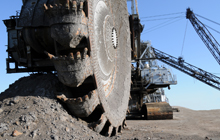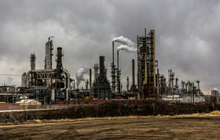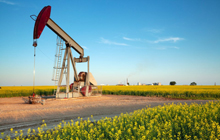Willow Creek, Alberta: Carbon tax survey raises council’s ire

Alberta municipality Willow Creek responds with claims, complaints, confusion to provincial government survey on negative impacts of the federal carbon tax
CLARESHOLM, AB – The Municipal District of Willow Creek council discussing a provincial government invitation to fill in an online survey titled “Impacts of Federal Carbon Tax Survey” evolved into a call to replace the federal government and to axe the tax.
MD of Willow Creek councillors discussed both the sitting federal government and the carbon tax, during their Oct. 9 meeting.
“The impacts (of the carbon tax) are no longer hypothetical,” chief administrative officer Derrick Krizsan said.
“And so, we’re looking at well over $200,000 in direct and indirect costs due to the federal carbon tax. Municipalities, like every person in Canada right now, are paying a levy on staying warm, keeping cool and filling up the gas tank. And of course, those costs are passed on in everything we do.”
The CAO said the numbers the MD of Willow Creek used in the survey “was a real rough estimate.”
“We said about $20,000 in electrical and natural gas carbon tax levies,” Krizsan said. “That looks like the number that we pay currently, directly for municipal facilities. The fuel, I think we're a bit low. We estimated about $100,000. I think we’re closer to $150,000 to $170,000 is what we pay on that 21 cents per litre tax on diesel fuel for carbon. And those are just the direct costs and the indirect costs are accumulated very quickly.”
Krizsan said during a post-meeting interview, “The costs to some of our other community organizations, including public housing and societies and associations that operate facilities?”
“A lot of these small organizations are using a significant portion of their grant funding to fund infrastructure utilities. And it’s certainly a big concern. Everything we see in the grocery stores and purchase on a daily basis has to come in by truck. The cost of the carbon tax begins at the manufacturing stage and is passed on to distributors, wholesalers, shippers and retailers. And it accumulates and compounds quite quickly.”
Reeve Maryanne Sandberg agreed many councillors want a federal election and see what happens to the federal carbon tax.
“I know that our administration points at the carbon tax not only because of our increasing fuel costs but at all of our costs,” Sandberg said. “It’s all gone up exorbitantly.”
“We’ve noticed the carbon tax increasing costs in our housing management bodies. We can’t just willy-nilly increase rents — we have to be within certain guidelines for housing for our seniors. Right?”
Of course, complaining about the carbon tax isn’t the gripe of the week.
“This has been a regular complaint for a long time,” the reeve said.
“And it’s just amazing that (Municipal Affairs Minister Ric) McIver is now asking for this information when many of us have complained about it for a long time. I guess one could argue that you’d say, ‘Hey, are we entering the fight with the province versus federal?’ I mean, many of us have been against this carbon tax for a long time and how it affects your daily life.”
In inviting Alberta municipalities to participate in the survey, McIver explained, “The government of Alberta is increasingly concerned about the federal carbon tax’s impact on municipalities. For the provincial government to better understand the pressures municipalities are facing and advocate to the federal government on your behalf, we are requesting that all Alberta municipalities share data relating to the impact of the carbon tax on your operations, both directly and indirectly.”
Mickey Dumont is a Local Journalism Initiative reporter with the Claresholm Local Press in Claresholm, Alberta.







(0) Comments